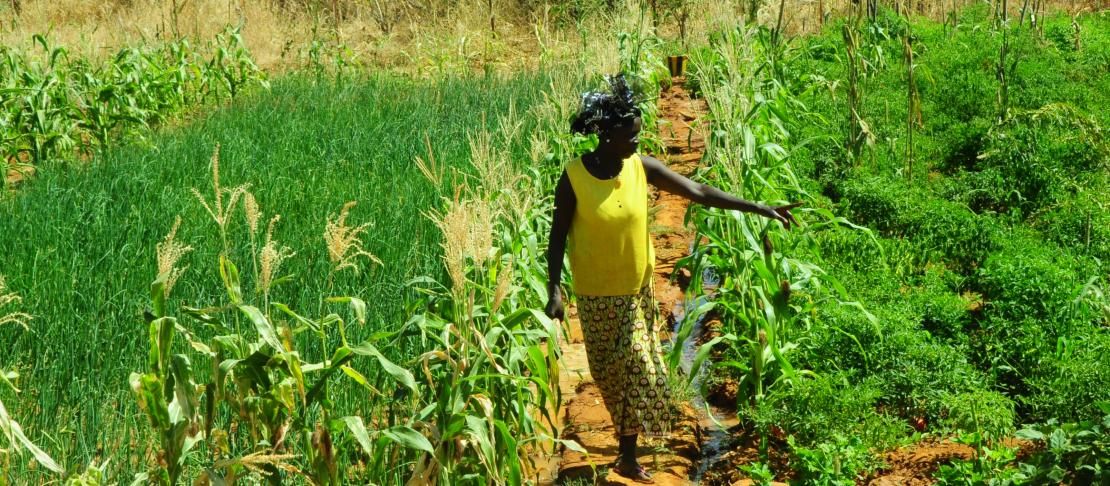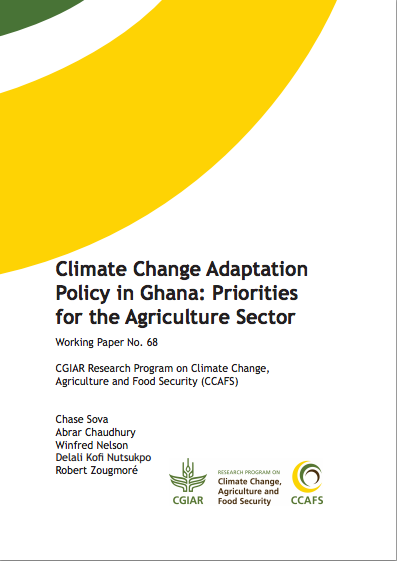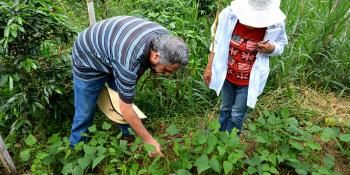Ghana’s climate change adaptation policy: priorities for the agriculture sector

A new working paper analyzes 17 key policy documents that provide a broad ‘enabling environment’ for climate adaptation in Ghana.
Just in time for UN Climate Talks in Lima, a new CCAFS working paper titled “Climate Change Adaptation Policy in Ghana: Priorities for the Agriculture Sector” outlines Ghana’s efforts to equip its agricultural sector for the threat of climate change. The paper analyzes 17 key policy documents that make up the broad ‘enabling environment’ for climate change adaptation in the country, including medium and long-term development policies, agricultural policies, and climate change policies. The document, which was prepared through CCAFS Systemic Integrated Adaptation (SIA) project, is an interdisciplinary research effort in collaboration with the University of Oxford’s Environmental Change Institute.
It chronicles Ghana’s recent advances in the area of climate policy development and integration in the agricultural sector. Agriculture and food security, for example, features prominently in the new National Climate Change Policy (NCCP) as the first of five focus areas. Particular emphasis is placed in the NCCP on ‘developing climate-resilient agriculture and food security systems’.
Beyond the NCCP, specific objectives and interventions from each of the 17 policies (dating from 1996 to present) are extracted in the paper, demonstrating how agricultural policy priorities in Ghana have shifted over time. Among other findings, three key trends in Ghana’s policy environment are of particular relevance to ongoing National Adaptation Plans (NAP) discussions within the UNFCCC and these are: decentralization, climate policy integration (mainstreaming), and privatization.
Decentralization
Renewed efforts toward fiscal, administrative and political decentralization have the potential to improve localized adaptation decision making necessary for the agricultural sector in Ghana, but low capacity of the District Assemblies (DAs) and delays in fund distribution to DAs from the Ministry of Finance (MOF) stand in the way. This process can be improved, the authors suggest, through active engagement of the Ministry of Finance’s newly placed Climate Change Unit and increased participation in adaptation planning from the National Development Planning Commission (NDPC) and the Ministry of Local Government and Rural Development (MLGRD).
Decentralization highlights the key role that non-technical agencies (i.e. ministries and agencies other than the Ministry of Agriculture or Environment) play in the adaptation planning process. Building on CCAFS efforts to integrate political groups into climate change planning and implementation, the working paper suggests the important role that political party manifestos have in shaping agricultural investment.
Mainstreaming
Mainstreaming climate change extends beyond merely the political realm and manifestos. The authors highlight the complex web of policies that interact to deliver development and adaptation resources to some three million households engaged directly in agriculture in Ghana. One hundred and ninety-two separate policies from diverse sectors are cross-referenced throughout the 17 documents chosen for agricultural sector analysis.
This highlights the critical need for cross-sectoral planning and strong inter-ministerial coordination within the adaptation country’s adaptation regime. Within each of the 17 documents, climate change references also vary considerably. For example, climate change is referenced 62 times in the Ghana Shared Growth and Development Agenda (GSGDA – the country’s medium term planning framework), but only on one occasion in the Food and Agriculture Sector Development Policy II, the most recent agricultural sector plan.
Private Sector
In the area of private sector participation, the authors noted that “improved domestic marketing,” “improved access to export markets” and “improved access to agricultural technologies” have remained consistent agricultural policy objectives from 1996 to present. Public-private partnerships (PPPs) and value chain development have emerged as key agricultural sector development strategies as well. Yet, the outcomes of the power and influence mapping conducted in the latter half of the document suggests that the private sector is not among those actor groups widely considered ‘highly relevant’ to adaptation policy development or implementation.
Increased consideration of private sector actors and value chain approaches may pay dividends for Ghana’s adaptation regime moving forward. These trends and others are covered in the document’s ‘key messages’, a summary for policymakers. Besides, detailed annexes offer comprehensive data for readers who would like to dig deeper into Ghana’s agricultural adaptation policy regime.
Download Climate Change Adaptation Policy in Ghana: Priorities for the Agriculture Sector”
Chase Sova is a visiting researcher at the International Center for Tropical Agriculture (CIAT), and a doctoral candidate at the University of Oxford, Environmental Change Institute (ECI). He is also part of the Systemic Integrated Adaptation (SIA) program, and a co-author of the Working Paper "Climate Change Adaptation Policy in Ghana: Priorities for the Agriculture Sector".




